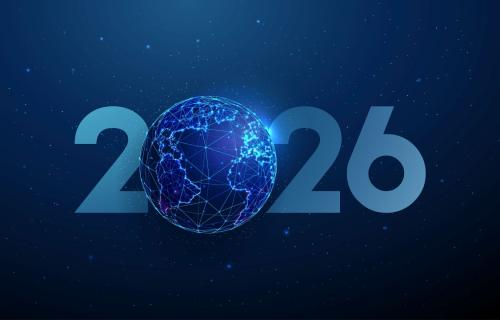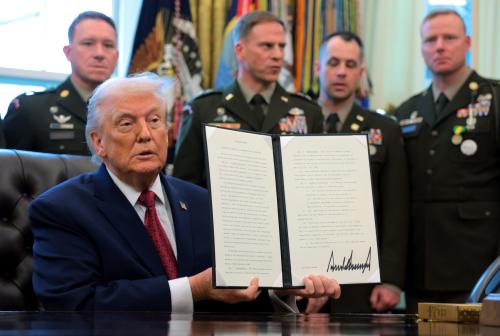Every country mourns in its own way. As the bodies of 194 citizens who died in the crash of Malaysia Airlines Flight 17 in Ukraine are returning home, all eyes are on the particular Dutch brand of mourning. The Netherlands is a small country unused to such tragedies in its postwar history. At first, the public reaction was shock, followed by outrage over the appalling treatment of the victims and the looting on the crash site.
The official reaction has been more measured. The Dutch prime minister and foreign minister were able to contain their emotions and not participate in the accusations that were flying back and forth. They focused on bringing the victims home to their families, and starting an international investigation. There have been hints at further sanctions and a reevaluation of Dutch-Russian relations, but no calls for direct, precipitous action. In the rest of Europe, excluding the United Kingdom, the reaction has been more tepid. The French even found this a good moment to go ahead with the sale of a sophisticated helicopter carrier to the Russian Navy.
Mourning in America, recalling 9/11, is quite different. The American way, as the country singer Toby Keith so memorably put it, is to “put a boot in their ass.” Americans accordingly, have puzzled over what they see as a halfhearted reaction to such a tragic event. This (lack of) response has enraged policymakers and commentators in the U.S. If this tragic event cannot spur tough European action against Ukrainian thugs and their Russian supporters, then what can? As my Brookings colleague Steven Pifer wrote, outrage is not a policy. I certainly agree, but I would add that history has proven that outrage is also a lousy policy advisor.
The Dutch and European response to Putin may indeed lack a certain satisfying call for immediate action, but that does not necessarily make it a less effective policy. Outrage notwithstanding, it is a fact of European life that 28 members of the European Union will agree only very slowly, if at all, on taking a meaningful stance vis-à-vis Russia. Economic ties with Russia are too substantial and moreover differ too much among member states to make a unified forceful response realistic. Moreover, as Europe continues to climb out of a grave economic recession, no politician is willing to risk thousands of jobs without knowing exactly what can be gained by doing so. Though the downing of MH17 has sped up the decision-making process in Europe and additional sanctions are soon expected, it is unlikely that they will even meet the standard of the oft-derided U.S. sanction efforts.
Thinking long-term in dealing with Russia
Given this difficulty, effectively Dutch and European policy makers are forced to look at the long term. Ending relations with Russia seems like economic suicide, and would not serve anyone and Russia will remain Europe’s neighbor under any circumstances. Yet it is possible to take a different view of Russia and change the nature of the relationship over time. The challenge that comes with long-term policymaking is that as time heals wounds, it cools ambitions. And history has shown that in the Netherlands in particular the merchant spirit often prevails over principle, as eloquently illustrated by Bas Heijne.
Whether this time will be different, only time can tell. However, the Dutch and the Europeans can draw some important initial lessons from this tragic event.
- First, Russian President Putin is not our friend, and policies can reflect that as long as he and his clique are in charge in Russia. So the aim is to decrease rather than increase economic, political and cultural ties with that country.
- Second, to diminish Russian influence in European natural gas markets, member states finally need to get serious on completion of the internal market. Opening up Central, Eastern and Southern Europe for competition would prevent market abuse by Gazprom, and make European energy markets attractive for all global suppliers, including at some point those from North America. Close collaboration with the private sector is required here, as those actors call the shots and are the real actors in the liberalized market environment. Let it therefore also be clear upfront that this diversification will come at a cost.
- Third, Europe has to step up its efforts to reduce energy demand by installing ambitious energy efficiency targets. It can also ramp up investments in renewable and domestic energy resources.
- Fourth, because the U.S. is changing its role in the international arena, the Europeans need to reconsider their defense policies and improve collaboration on that front. The situation in Ukraine is part of a chain of turmoil in Europe’s periphery, including Algeria, Tunisia, Libya, Egypt, Syria, Iraq and Israel–Palestine. It resembles a large fireplace, and European member states are right in the middle. At some point in time, spillovers may happen, and Europe has to be prepared. Europe has to reposition itself in a global environment that seems less predictable and stable than it did before.
“Let MH17 be our 9/11,” several commentators wrote in light of recent events. Maybe, but a decade-long war and thousands of additional casualties are not the right response to this tragedy. In other words, a boot in the ass is unwise and, in any case, beyond the Dutch and European capability. But a wooden shoe can be painful as well. The Dutch have learned the hard way that as long as Putin runs Russia, business as usual cannot be an option.
The Brookings Institution is committed to quality, independence, and impact.
We are supported by a diverse array of funders. In line with our values and policies, each Brookings publication represents the sole views of its author(s).



Commentary
Courtesy of the Red, White and Blue, Dutch Version
July 24, 2014